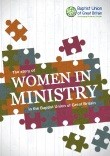One metaphor that some people find helpful in talking about faith is that of a mountain. The peak of the mountain represents the core essentials, the things that are absolutely vital if someone wishes to term themself a Christian (or a whatever). Moving down the mountain come things that are less clear cut and over which there may be diverse opinion and even some variety. The lower you go, the wider the acceptable perspectives and the greater the diversity.
So, f'rinstance, central to Chirstianity would be something about the triune God, the person and work of Christ, about atonement and redemption, about the Holy Spirit. Whilst there is no one precise way of understanding any of these complex doctrines, they are central to what Christianity is and are non-negotiable. Exactly which doctrines will form the central core, the high peak of the mountain, and how they are understood and expressed is something where people will vary in their views, but there is broad agreement.
And also f'rinstance, right at the bottom of the mountain, or even beyond its foothills, would be the things that no-one bothers about very much (from an acceptability/authenticity perpective anyway), such as vestments, building architecture, seating arrangments or hymn books. I may prefer a suit, a flexible space, curves and a range of hymns whilst you love cassocks, cathedrals, lines and HA&M but neither of us is going to fall out over it or accuse the other of heresy!
And then the things part way up the mountain, often the tricky and sticky ethical debates, the things that didn't exist in Bible times, the things where scientific discovery challenges traditional views, the things where pastoral responses are not black and white. These are scattered along the moutainside and may move up or down its slopes over time. These are, I suggest, the elephants. Among those in recent years (i.e. the last century or so) are ordination of women, marriage of people previously divorced, blood transfusions and organ tranpslantation, assisted conception, just war and human seuxuality. Some of these elephants have proved bigger and more stubborn than others. Some that were enormous a generation ago (I still have books published in the 1980s that denounce fertility treatment) have vanished (hiow many churches are actively praying for couples undergoing IVF as if this were the most natural thing in the world?). Others seem to grow and grow and to climb higher and higher up the mountain until, well, they turn in to mountains, or even shibboleths, in their own right.
It is a fact that every now and then I will be blanked (ignored, walked past) by other Baptist ministers just because I happen to have the 'wrong' chromosomal configuration. For some people this elephant is alive and well and is fed regularly. Now I don't mind people having a different view - it took me many years to come round to the idea - but I do mind that the elephant becomes bigger than the mountain, that this one thing is the definition of 'soundness' irrespective of what they or I might believe about Christ.
Over recent months the elephant of human sexuality has once again been fed a lot and is growing bigger. As churches and individuals become polarised in their thinking, unable to listen to or hear from one another, it moves higher and higher up the mountain. The trouble is that most of us - myself included - most of the time try to walk round it or to wish it away, and that simply isn't going to happen. Sooner of later we all, individually and collectively, need to face the elephant and lead it to its rightful place on the mountain - which surely cannot be at the peak, can it?
This issue is about to become very live in BUS circles - some statements will be made at the upcoming Assembly. Please, if it's your thing, pray for those who wrestle with the challenges of devising a form of words that will hold to the core without being destructive or devisive. Please pray for those in all churches (and there will be people in ALL churches) who are directly impacted by pronouncements on the accpetability of their sexuality. Please pray for those in pastoral ministry who do their flawed best to serve Christ as sheepdogs or shepherds on the side of a rugged and sometimes precipitous mountain.
 Very recently BUGB published this little book, and my copy arrived last week. I have only just got around to opening it and have yet to read it properly. However, I flicked through and found a number of interesting appendices written by people I know.
Very recently BUGB published this little book, and my copy arrived last week. I have only just got around to opening it and have yet to read it properly. However, I flicked through and found a number of interesting appendices written by people I know.